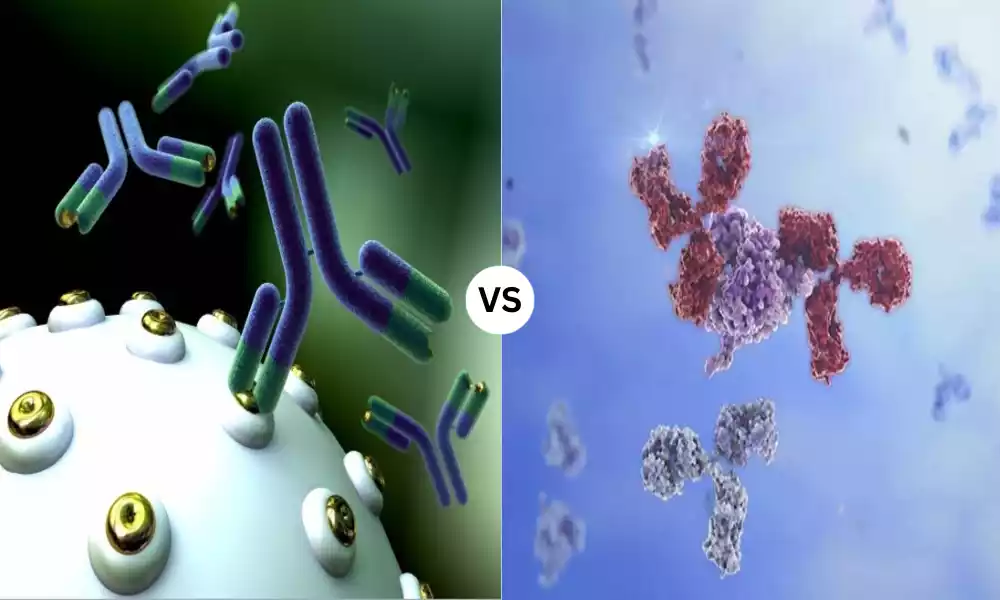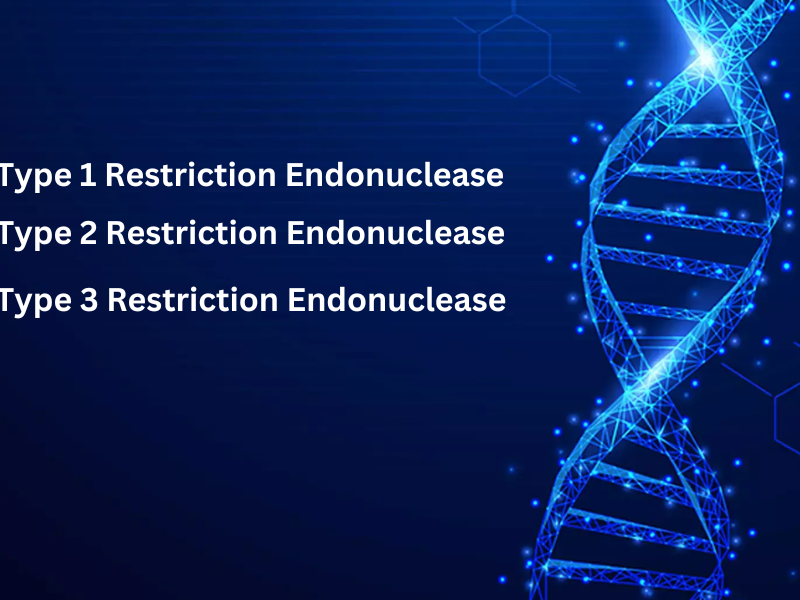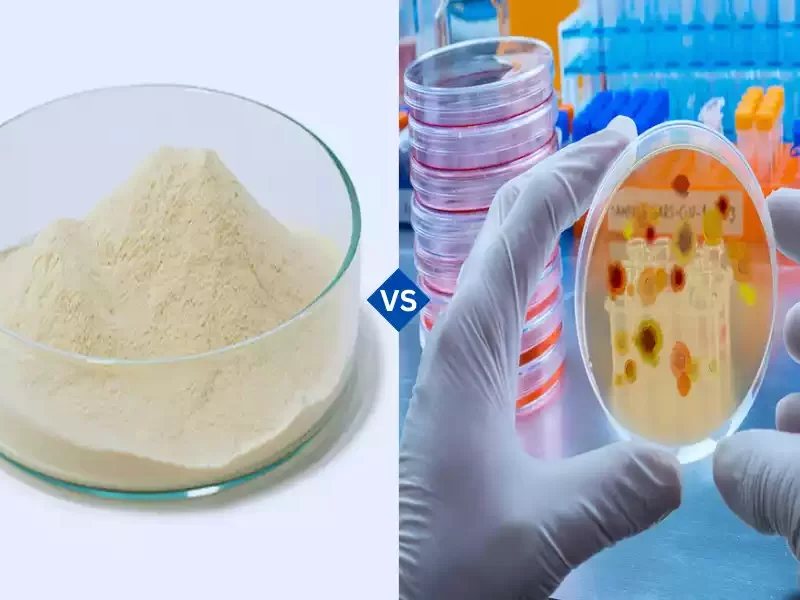Monoclonal Antibodies and Polyclonal Antibodies are two primary categories of antibodies used for various biomedical applications. Monoclonal antibodies are molecules produced by identical immune cells, derived from a single parent cell, and are specific to a single epitope on an antigen. They offer consistency and specificity, making them invaluable in therapeutic applications and diagnostic tests.
On the other hand, polyclonal antibodies are derived from multiple immune cell lineages and recognize multiple epitopes on a single antigen. This gives them the advantage of being able to bind to a broader range of antigenic structures. They are primarily used in research and diagnostic assays for their versatile binding capabilities.
What are Monoclonal Antibodies?
Monoclonal antibodies are laboratory-made molecules that mimic the immune system’s ability to fight off harmful pathogens such as viruses. These antibodies are produced by identical immune cells that are clones of a single parent cell, meaning that they are homogeneous and target a single specific epitope on an antigen. Because of their high specificity and consistency, monoclonal antibodies are widely used in various therapeutic, diagnostic, and research applications, ranging from cancer treatment to COVID-19 therapy.
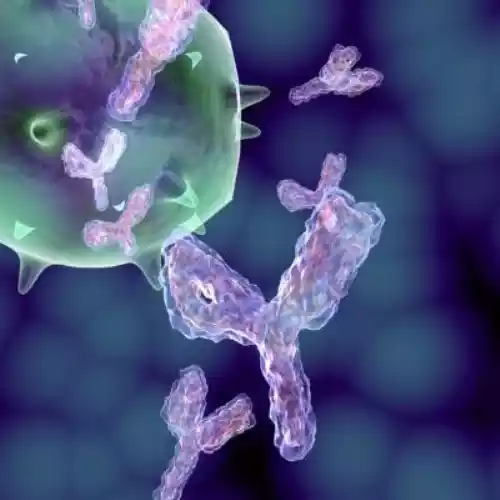
Characteristics of Monoclonal Antibodies
Monoclonal antibodies have several defining characteristics that make them valuable for a range of scientific, diagnostic, and therapeutic applications:
-
- Specificity: Monoclonal antibodies are highly specific to a single epitope on an antigen, allowing for targeted binding. This feature is especially useful in diagnostic tests and treatments that require precision.
- Uniformity: Since they are produced by clones of a single parent cell, monoclonal antibodies are uniform in structure and function, leading to consistent performance across different batches.
- Purity: Unlike polyclonal antibodies, which are a mixture of antibodies targeting different epitopes on the same antigen, monoclonal antibodies are pure and target only a single epitope, reducing cross-reactivity.
- Stability: Monoclonal antibodies generally exhibit long-term stability, maintaining their efficacy over time when stored under appropriate conditions.
- Scalability: These antibodies can be produced in large quantities in the lab using hybridoma technology or recombinant methods, making them suitable for large-scale applications.
- High Affinity: They often have a high affinity for their target epitope, allowing for effective binding and activity even at low concentrations.
- Customizability: Advanced biotechnological techniques enable the engineering of monoclonal antibodies to improve their properties or to add new functionalities, such as enhanced drug delivery.
- Limited Reactivity: Because they target a specific epitope, monoclonal antibodies generally have less off-target effects compared to polyclonal antibodies, although this can also be a limitation if the epitope mutates or is hidden.
- Humanization: Monoclonal antibodies can be “humanized” through bioengineering to reduce potential immunogenicity when used in therapeutic applications for humans.
- Cost: The development and production of monoclonal antibodies can be expensive and time-consuming, which can be a drawback when compared to polyclonal antibodies.
- Ethical Considerations: Animal use is often involved in the production of monoclonal antibodies, raising ethical considerations.
These characteristics make monoclonal antibodies invaluable tools in modern medicine, from their role in targeted cancer therapies to their use in combating infectious diseases.
Applications and Uses
Monoclonal antibodies have a wide range of applications and uses across various fields, primarily in biomedicine, but also in other areas such as environmental monitoring and basic research. Here are some of the key applications:
Therapeutic Uses:
- Cancer Treatment: Monoclonal antibodies like trastuzumab and rituximab are used to target specific cancer cells without harming normal cells, making them effective for treating certain types of cancers.
- Autoimmune Diseases: Therapies using monoclonal antibodies, such as adalimumab, are effective in treating autoimmune conditions like rheumatoid arthritis and psoriasis by targeting specific molecules involved in inflammation.
- Infectious Diseases: Monoclonal antibodies, such as those used against COVID-19, can neutralize pathogens, offering a therapeutic route in viral infections.
- Organ Transplant: Monoclonal antibodies are used to suppress the immune system temporarily to prevent the body from rejecting a transplanted organ.
- Neurological Disorders: Some monoclonal antibodies are being developed for the treatment of conditions like Alzheimer’s disease by targeting specific proteins involved in the disease.
Diagnostic Uses:
- ELISA Tests: Used in enzyme-linked immunosorbent assays (ELISA) for the detection of various substances like hormones, bacterial antigens, and viral antibodies.
- Immunohistochemistry: For the identification of specific cells within a tissue sample, often used in cancer diagnosis.
- Flow Cytometry: To classify and sort cells based on the expression of specific antigens.
- Pregnancy Tests: Some over-the-counter pregnancy tests use monoclonal antibodies to detect the presence of human chorionic gonadotropin (hCG) in urine.
Research:
- Protein Purification: Monoclonal antibodies are used to purify proteins in a technique known as immunoprecipitation.
- Western Blot: Used to detect specific proteins in a sample.
- Animal Research: Used to study disease mechanisms in animal models.
Environmental Monitoring:
- Toxin Detection: Monoclonal antibodies can be used to detect environmental toxins in water or soil.
- Food Safety: Used in assays that detect pathogens or contaminants in food products.
Other Uses:
- Targeted Drug Delivery: Can be conjugated with drugs or radioactive substances to deliver them directly to targeted cells, increasing the efficacy and reducing side effects.
- Immunosensors: Used in the development of biosensors for the detection of specific substances.
Because of their specificity, purity, and versatility, monoclonal antibodies are indispensable tools in modern science and medicine.
Advantages and Limitations
Monoclonal antibodies offer several advantages and limitations that can influence their effectiveness in various applications:
Advantages:
- High Specificity: They are highly specific to a single epitope, enabling targeted therapies and accurate diagnostic tests.
- Uniformity: Produced from a single clone, these antibodies offer consistent batch-to-batch performance.
- Reduced Cross-reactivity: Targeting only a single epitope, monoclonal antibodies are less likely to bind to unrelated substances, reducing false positives in diagnostics.
- Scalability: Once a monoclonal antibody-producing cell line is developed, it can produce antibodies on a large scale, which is vital for industrial and clinical applications.
- Customizability: Advanced biotechnological techniques allow for the engineering of antibodies to enhance their properties or add functionalities, such as drug delivery capabilities.
- Stable Supply: Once a monoclonal antibody is developed, it can be produced in consistent quality and quantity over a long period.
- Humanization: These antibodies can be engineered to reduce their immunogenicity when administered to humans, thereby lowering the risk of adverse immune responses.
Limitations:
- Limited Epitope Recognition: Because they target a specific epitope, they may become ineffective if that epitope mutates or is masked, as is common in rapidly evolving viruses or some cancer cells.
- High Cost: Developing and producing monoclonal antibodies is often expensive, making them less accessible for some applications.
- Time-consuming Development: It can take a considerable amount of time to generate and validate a monoclonal antibody for a specific application.
- Risk of Immunogenicity: Although humanization reduces the risk, the administration of monoclonal antibodies can sometimes trigger an immune response, leading to adverse effects.
- Storage and Stability: Monoclonal antibodies often require specific storage conditions, like low temperatures, which can limit their utility in low-resource settings.
- Ethical Concerns: The production of some types of monoclonal antibodies may involve animal use, raising ethical considerations.
- Narrow Therapeutic Window: Their high specificity may also mean a limited scope of activity, making them ineffective against diseases caused by multiple factors or pathogens.
Understanding these advantages and limitations is crucial for the effective utilization of monoclonal antibodies in research, diagnostics, and therapy.
What are Polyclonal Antibodies?
Polyclonal antibodies are a mixture of antibodies produced by different clones of immune cells, known as B lymphocytes, in response to an immunogenic substance or antigen. Unlike monoclonal antibodies, which target a single epitope on an antigen, polyclonal antibodies recognize multiple epitopes on the same or different antigens. This results in a heterogeneous mixture of antibodies with varying affinities and specificities.
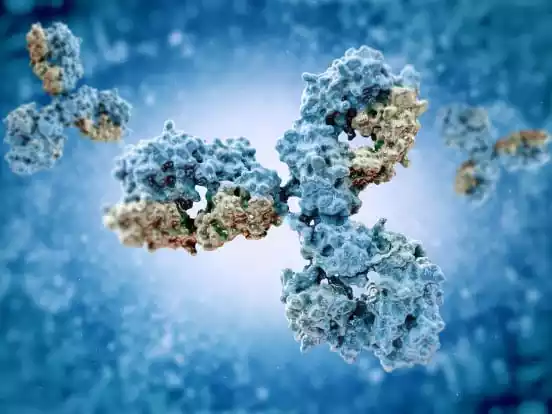
Due to their ability to bind to multiple epitopes, polyclonal antibodies are often used in applications where a broader scope of antigen recognition is advantageous, such as in certain diagnostic assays, research applications, and treatments for some infections.
Characteristics of Polyclonal Antibodies
Polyclonal antibodies have distinct characteristics that make them different from monoclonal antibodies, and these features confer advantages and disadvantages in various applications:
Characteristics:
-
- Heterogeneity: Polyclonal antibodies are a mixture of antibodies, each targeting different epitopes on an antigen. This results in a heterogeneous population of antibodies with different specificities and affinities.
- Broad Reactivity: They can recognize multiple epitopes on a single antigen, which can be advantageous when a broader scope of detection or activity is desired.
- High Sensitivity: Due to their ability to bind to multiple epitopes, polyclonal antibodies often have higher sensitivity in detecting antigens in diagnostic assays compared to monoclonal antibodies.
- Less Sensitive to Epitope Variation: Because they target multiple epitopes, polyclonal antibodies are generally less affected by mutations or structural changes in a single epitope.
- Easier and Cheaper to Produce: Compared to monoclonal antibodies, polyclonal antibodies are often easier and less expensive to produce, usually requiring just the immunization of an animal like a rabbit or goat.
- Limited Batch-to-Batch Consistency: Since they are derived from the immune response of animals, there may be variation in specificity and affinity from batch to batch.
- Cross-reactivity: The broad specificity can lead to higher chances of cross-reactivity with unrelated antigens, potentially causing false-positive results in diagnostics or off-target effects in therapeutic applications.
- Limited Availability: Because they are harvested from the serum of immunized animals, the quantity of specific polyclonal antibodies may be limited, especially for rare antigens.
- Less Suitable for Quantitative Analysis: Due to their heterogeneity and the potential for cross-reactivity, they are often less suitable for quantitative assays compared to monoclonal antibodies.
- Shorter Shelf Life: Polyclonal antibodies may have a shorter shelf life compared to monoclonal antibodies, requiring more frequent replenishment.
Understanding these characteristics is essential for selecting the appropriate type of antibody for a particular application, whether it be in research, diagnostics, or therapy.
Applications and Uses
Polyclonal antibodies have diverse applications in research, diagnostics, and therapeutics, among other areas. Here are some of the key uses:
Research:
- Western Blot: Commonly used in Western blot assays for protein detection, where high sensitivity is often more critical than high specificity.
- Immunoprecipitation: Used to isolate proteins and other molecules from complex mixtures for study.
- Immunohistochemistry: Used to visualize the localization of proteins or other antigens in tissue sections.
- ELISA: Employed in enzyme-linked immunosorbent assays for antigen detection, though they are often less precise than monoclonal antibodies.
- Flow Cytometry: Used in cell sorting and identification based on antigen expression, particularly when recognizing multiple epitopes is advantageous.
Diagnostics:
- Serological Tests: Employed in tests to identify the presence of antibodies against pathogens in blood serum.
- Pathogen Detection: Used to detect the presence of bacterial or viral antigens in samples.
- Cancer Diagnosis: Used in identifying specific markers on cancer cells, although monoclonal antibodies are often preferred for their specificity.
- Pregnancy Tests: Some types of over-the-counter pregnancy tests utilize polyclonal antibodies.
Therapeutics:
- Antivenom Production: Polyclonal antibodies are commonly used in antivenoms to neutralize the effects of snake or spider venom.
- Infectious Diseases: Used to treat certain infections by neutralizing pathogens, although this is less common than using monoclonal antibodies for this purpose.
- Immunomodulation: Employed in conditions that require modulation of the immune response, though this is a less common application.
Other Uses:
- Quality Control: Used in various industrial processes to ensure product quality, for example, in the food industry to detect contaminants.
- Environmental Monitoring: Employed in assays designed to detect environmental pollutants or other hazardous substances.
- Veterinary Medicine: Used in both diagnostics and treatments of various diseases in animals.
- Custom Assays: Due to their versatility and broad reactivity, they can be employed in custom assays where recognizing multiple epitopes of an antigen is beneficial.
Due to their broad reactivity and sensitivity, polyclonal antibodies are highly versatile and find applications in a range of fields. However, their limitations such as batch-to-batch variability and potential for cross-reactivity should be considered when choosing them for a specific application.
Advantages and Limitations
Polyclonal antibodies come with a set of advantages and limitations that make them suitable for certain applications while less ideal for others.
Advantages:
- Broad Reactivity: They can bind to multiple epitopes on an antigen, making them more versatile in certain applications where a wide scope of antigen recognition is beneficial.
- High Sensitivity: Due to their ability to recognize multiple epitopes, polyclonal antibodies often offer higher sensitivity in diagnostic assays.
- Tolerance to Epitope Variation: They are generally more resilient to changes or mutations in the antigenic epitope, maintaining their effectiveness even when the antigen undergoes minor alterations.
- Ease of Production: Typically easier and less expensive to produce than monoclonal antibodies, polyclonal antibodies can be generated by simply immunizing an animal like a rabbit or a goat.
- Versatility: Useful in a variety of assays and techniques, including Western blot, immunoprecipitation, and immunohistochemistry, among others.
- Robustness: Often more tolerant of changes in experimental or environmental conditions, such as temperature or pH changes.
Limitations:
- Batch Variability: Polyclonal antibodies can exhibit batch-to-batch variability, as they are derived from the serum of immunized animals.
- Cross-reactivity: Their broad reactivity can be a downside, leading to cross-reaction with other antigens and causing false positives in diagnostic tests or off-target effects in therapeutic applications.
- Limited Quantitative Analysis: The heterogeneity of polyclonal antibodies often makes them less suitable for applications requiring precise, quantitative measurements.
- Shorter Shelf Life: Generally, they have a shorter shelf life than monoclonal antibodies, requiring more frequent replacement.
- Limited Supply: The quantity of a specific antibody may be limited, especially if it is produced against a rare antigen, since the antibodies are harvested from animal serum.
- Ethical Considerations: Like monoclonal antibodies, the production of polyclonal antibodies often involves the use of animals, which raises ethical concerns.
Understanding these advantages and limitations is crucial when selecting the appropriate type of antibody for specific scientific, diagnostic, or therapeutic needs.
Comparison Table of Monoclonal Antibodies and Polyclonal Antibodies
Certainly, here’s a comparison table to highlight the differences between monoclonal and polyclonal antibodies.
| Characteristics | Monoclonal Antibodies | Polyclonal Antibodies |
|---|---|---|
| Specificity | High (single epitope) | Variable (multiple epitopes) |
| Heterogeneity | Homogeneous | Heterogeneous |
| Sensitivity in Assays | Generally lower | Generally higher |
| Production Complexity | More complex and expensive | Simpler and less expensive |
| Batch-to-Batch Consistency | High | Variable |
| Epitope Tolerance | Lower (sensitive to epitope changes) | Higher (tolerant to epitope changes) |
| Cross-reactivity | Less likely | More likely |
| Scalability | High (cell lines) | Lower (animal serum) |
| Shelf Life | Longer | Shorter |
| Quantitative Analysis Suitability | Better suited | Less suited |
| Versatility in Applications | Limited to specific targets | More versatile |
| Risk of Immunogenicity | Lower (can be humanized) | Higher |
| Ethical Concerns | May involve animal use | Usually involves animal use |
| Therapeutic Applications | Broad (cancer, autoimmunity, etc.) | Limited (mainly antivenom) |
| Diagnostic Applications | Specific tests (e.g., ELISA) | Broad (e.g., Western blot, ELISA) |
| Research Applications | Specific and targeted | Broad and versatile |
This table summarizes some of the main characteristics, advantages, and limitations of monoclonal and polyclonal antibodies. Each type has its own set of strengths and weaknesses that make it more or less suitable for specific applications.
Making of Monoclonal Antibodies and Polyclonal Antibodies
The production of monoclonal and polyclonal antibodies involves different methodologies and protocols. Here’s a brief overview of how each type is made:
Making of Monoclonal Antibodies
-
- Immunization: A laboratory animal, often a mouse, is immunized with the antigen of interest to stimulate an immune response.
- Cell Fusion: After a few weeks, spleen cells from the immunized animal, which are producing the antibodies, are fused with immortal myeloma cells to create hybridoma cells.
- Selection: The hybridoma cells are then cultured in selective media to ensure only the successfully fused cells survive.
- Cloning: Individual hybridoma cells are isolated and cultured separately to produce clones. Each clone produces antibodies that are identical and target the same epitope.
- Screening: The clones are screened to identify the ones producing the antibody with the desired specificity and affinity.
- Large-scale Production: Once a suitable clone is identified, it is cultured in large quantities to produce the monoclonal antibodies, often using bioreactors.
- Purification: The produced antibodies are then purified, usually using techniques like protein A/G affinity chromatography.
- Quality Control: Rigorous testing is done to ensure the antibodies meet the required specifications.
- Humanization: If intended for therapeutic use in humans, the antibodies may undergo further engineering to reduce potential immunogenicity.
Making of Polyclonal Antibodies
-
- Immunization: A laboratory animal, commonly a rabbit or a goat, is immunized with the antigen of interest.
- Booster Injections: Additional booster injections are often given to sustain the immune response.
- Serum Harvesting: Blood is collected from the immunized animal after a sufficient time has passed, and the serum containing the antibodies is separated.
- Purification: The antibodies are then purified from the serum, often using techniques such as ammonium sulfate precipitation or protein A/G affinity chromatography.
- Quality Control: Like monoclonal antibodies, polyclonal antibodies undergo quality control testing to ensure they meet the required specifications.
- Pooling: Since polyclonal antibodies are a mixture, sera from multiple animals may be pooled to achieve a desired range of reactivity.
The choice between monoclonal and polyclonal antibodies will depend on the specific needs of the project, taking into account factors like specificity, sensitivity, and the intended application.
Future Prospects
The future of antibody technology is promising, driven by advances in biotechnology, computational methods, and our understanding of immunology and disease mechanisms. Here are some future prospects for monoclonal and polyclonal antibodies:
Monoclonal Antibodies
- Personalized Medicine: Monoclonal antibodies may be increasingly tailored to individual patients, offering more targeted therapies for conditions like cancer and autoimmune diseases.
- Humanized and Fully Human Antibodies: Advances in engineering are making it easier to create fully human or humanized antibodies, reducing the risk of immunogenicity when used in therapy.
- Multispecific Antibodies: Research is underway to create antibodies that can target multiple antigens simultaneously, potentially improving therapeutic efficacy.
- AI and Computational Methods: Machine learning and computational techniques may streamline the design and optimization process, making it faster and less expensive to develop new monoclonal antibodies.
- Nanobodies: Smaller than conventional antibodies, nanobodies offer the potential for better tissue penetration and easier administration (e.g., inhalation or oral delivery).
- Drug Conjugates: Antibody-drug conjugates, which combine antibodies with cytotoxic agents, are an expanding field, particularly in cancer treatment.
- CRISPR Technology: Genome-editing techniques like CRISPR could further facilitate the development and modification of monoclonal antibodies.
Polyclonal Antibodies
- Automated Production: Efforts are being made to standardize and automate the production of polyclonal antibodies, which could mitigate issues of batch-to-batch variability.
- Ethical Advances: With increasing ethical concerns over animal use, alternatives such as in vitro methods for producing polyclonal antibodies are being explored.
- Broader Therapeutic Uses: While generally less common in therapeutic applications compared to monoclonal antibodies, advances in purification and engineering could open new avenues for polyclonal antibody therapies.
- Environmental Monitoring: Polyclonal antibodies may find increasing use in environmental applications, such as the rapid detection of pollutants or biohazards.
- Diagnostic Improvements: Better understanding of disease markers and technological advances could lead to more precise and reliable diagnostic tests using polyclonal antibodies.
- Adjuvant Research: Research on adjuvants that can enhance the effectiveness of polyclonal antibodies is also a future possibility.
Both monoclonal and polyclonal antibodies will likely continue to have a major impact on healthcare, diagnostics, research, and even environmental science. Their utility across multiple disciplines makes them one of the most versatile tools in modern science, and ongoing research is sure to bring further innovation and applications.
Final Opinion
Monoclonal and polyclonal antibodies serve as invaluable tools in various scientific, diagnostic, and therapeutic applications. While monoclonal antibodies offer high specificity and are ideal for targeted interventions, polyclonal antibodies provide broad reactivity and high sensitivity. The production techniques for both are continually evolving, thanks to advances in biotechnology and computational methods.
Each type of antibody has its own set of advantages and limitations, making them complementary rather than interchangeable for most applications. The future holds promising developments, including personalized medicine and ethical production methods, that are likely to expand the capabilities and applications of both monoclonal and polyclonal antibodies.

